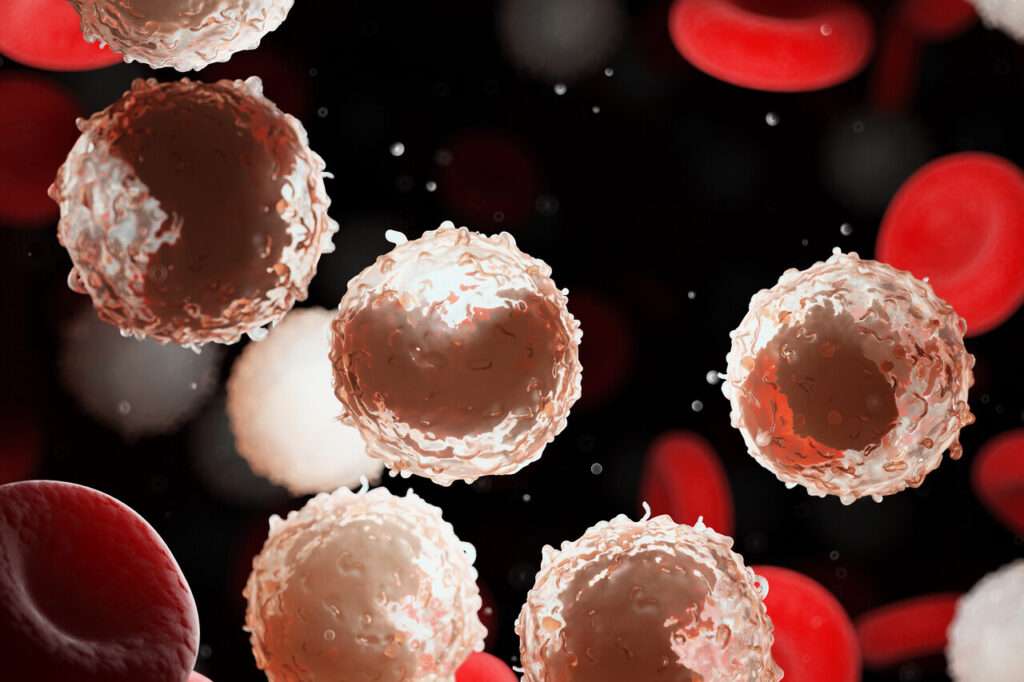High White Blood Cell Count (Leukocytosis)

High White Blood Cell Count (Leukocytosis)
Contact Us
Related Videos :
Frequently Asked Questions (FAQ) :
A WBC count above 11,000 per microliter is typically considered high, but dangerously high levels (above 100,000) can indicate serious conditions like leukemia that require immediate medical intervention.
Yes, stress, whether physical or emotional, can temporarily increase white blood cell counts as part of the body’s natural response. However, prolonged leukocytosis requires further medical evaluation.
Treatment depends on the cause and may include antibiotics for infections, steroids for inflammation, or specialized cancer therapies for bone marrow disorders.
Not always. While bone marrow cancers like leukemia can cause leukocytosis, elevated white blood cells can also be a response to infections, allergies, or other non-cancerous conditions.

High White Blood Cell Count (Leukocytosis) Treatment in India
Consult Dr. Rahul Bhargava for Comprehensive Leukocytosis Treatment
India’s leading hematologist, Dr. Rahul Bhargava, specializes in the diagnosis and treatment of blood disorders, including high white blood cell count (leukocytosis). With extensive experience in hematology, Dr. Bhargava provides personalized care for patients experiencing leukocytosis, ensuring the best outcomes through advanced diagnostic techniques and treatment protocols.
What is Leukocytosis (High White Blood Cell Count)?
Leukocytosis is a condition where the white blood cell (WBC) count exceeds the normal range in the bloodstream. White blood cells are crucial for fighting infections, but elevated levels may indicate an underlying issue such as inflammation, infection, or bone marrow problems. Although temporary leukocytosis may occur due to stress or physical activity, persistent high WBC counts require medical attention.
Causes of High White Blood Cell Count
Several factors can lead to leukocytosis, including:
- Infections: Bacterial, viral, or parasitic infections can trigger the body to produce more white blood cells.
- Inflammation: Conditions like arthritis or injuries can cause the immune system to release more WBCs.
- Bone Marrow Disorders: Leukemia or other cancers affecting bone marrow result in abnormal WBC production.
- Medications: Steroids or certain medications may stimulate an increase in white blood cells.
- Stress and Exercise: Physical or emotional stress and intense exercise can lead to a temporary rise in WBC count.
Types of Leukocytosis
Leukocytosis can be classified based on the type of white blood cell affected:
- Neutrophilia: Elevated neutrophils, usually due to bacterial infections.
- Lymphocytosis: Increased lymphocytes, often linked to viral infections.
- Monocytosis: High monocyte levels, possibly due to chronic infections or inflammatory conditions.
- Eosinophilia: Raised eosinophil count, commonly caused by allergic reactions or parasitic infections.
- Basophilia: Rarely seen but may occur with bone marrow disorders or allergic conditions.
Symptoms of Leukocytosis
While some patients may not experience symptoms, high white blood cell counts can sometimes lead to the following signs:
- Fever and fatigue
- Shortness of breath
- Unexplained weight loss
- Weakness
- Excessive sweating, particularly at night
- Frequent infections
- Swollen lymph nodes
Diagnosis of Leukocytosis
Diagnosing leukocytosis involves various tests and procedures to identify the underlying cause:
- Complete Blood Count (CBC): A primary test that measures WBC levels.
- Blood Smear: Helps examine the type and condition of white blood cells.
- Bone Marrow Biopsy: Used when bone marrow disorders like leukemia are suspected.
- Other Diagnostic Tests: Imaging studies, such as X-rays or CT scans, may be required to rule out infections, inflammations, or tumors.
At Dr. Rahul Bhargava’s clinic, you will undergo a thorough diagnostic process to ensure the accurate identification of the cause behind your elevated WBC count.
Treatment for High White Blood Cell Count
Treatment for leukocytosis depends on the underlying cause:
- Infection Control: Antibiotics, antivirals, or antifungal medications are prescribed to treat infections.
- Allergic Reaction Management: Antihistamines or steroids can help in reducing allergic reactions.
- Bone Marrow Disorders: If leukemia or other cancers are diagnosed, treatments may include chemotherapy, radiation, targeted therapies, or stem cell transplants.
- Lifestyle Changes: Managing stress and avoiding overexertion can help in cases of temporary leukocytosis.
Dr. Rahul Bhargava offers a comprehensive range of treatments, utilizing state-of-the-art medical technologies to provide patients with optimal care.
Cost of Treatment and Stay in India
Lorem ipsum dolor sit amet, consectetur adipiscing elit. Ut elit tellus, luctus nec ullamcorper mattis, pulvinar dapibus leo.